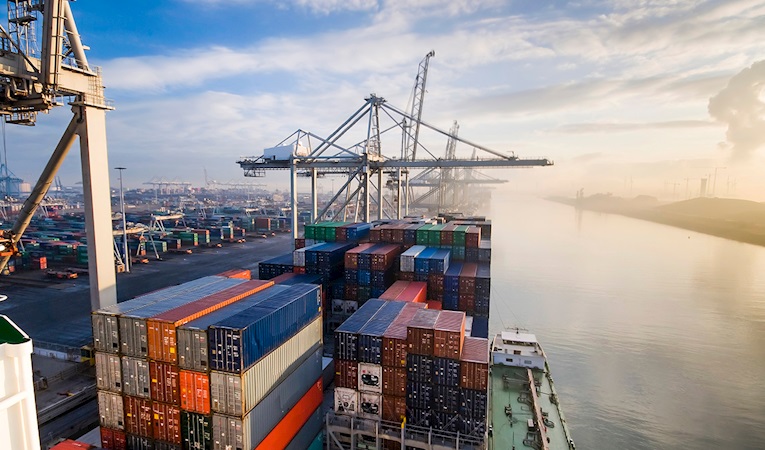
-
BIST 100
 12028,84%0,04En Düşük11990,25En Yüksek12124,58
12028,84%0,04En Düşük11990,25En Yüksek12124,58 -
DOLAR
 43,04%0,02Alış43,0268Satış43,0577En Yüksek43,0431
43,04%0,02Alış43,0268Satış43,0577En Yüksek43,0431 -
EURO
 50,37%0,15Alış50,3454Satış50,4027En Yüksek50,3907
50,37%0,15Alış50,3454Satış50,4027En Yüksek50,3907 -
EUR/USD
 1,17%-0,02Alış1,1676Satış1,1677En Yüksek1,1683
1,17%-0,02Alış1,1676Satış1,1677En Yüksek1,1683 -
ALTIN
 6155,38%-0,08Alış6154,66Satış6156,09En Yüksek6180,72
6155,38%-0,08Alış6154,66Satış6156,09En Yüksek6180,72
-
BIST 100
 12028,84%0,04En Düşük11990,25En Yüksek12124,58
12028,84%0,04En Düşük11990,25En Yüksek12124,58 -
DOLAR
 43,04%0,02Alış43,0268Satış43,0577En Yüksek43,0431
43,04%0,02Alış43,0268Satış43,0577En Yüksek43,0431 -
EURO
 50,37%0,15Alış50,3454Satış50,4027En Yüksek50,3907
50,37%0,15Alış50,3454Satış50,4027En Yüksek50,3907 -
EUR/USD
 1,17%-0,02Alış1,1676Satış1,1677En Yüksek1,1683
1,17%-0,02Alış1,1676Satış1,1677En Yüksek1,1683 -
ALTIN
 6155,38%-0,08Alış6154,66Satış6156,09En Yüksek6180,72
6155,38%-0,08Alış6154,66Satış6156,09En Yüksek6180,72
- Anasayfa
- Haberler
- Tüm Haberler
- The Latest Situation In The Major League
The Latest Situation In The Major League
This year saw the 11th of the “500 Largest Private Companies in Turkey” surveys. This massive study, which was first conducted in 1998, has attracted attention by demonstrating the real strength of...
This year saw the 11th of the “500 Largest Private Companies in Turkey” surveys. This massive study, which was first conducted in 1998, has attracted attention by demonstrating the real strength of the private sector. In fact, from this perspective, it is the first in its field… This year, as in previous years, the list produced some important messages and results. It was striking that the threshold for inclusion in the 500 Club rose significantly compared with last year. In 2006, the turnover of the last entry in the list stood at $65.9 million. But this increased by 49 percent this year to $98.3 million. Once again, the first three in the list have remained unchanged. Tüpraş and Türk Telekom continued with their impressive performance after privatization. Petrol Ofisi once again finished in the leading places.
The “500 Largest Private Companies in Turkey” survey, which is being conducted for the 11th time this year, has for 11 years generated a lot of interest reflecting all the changes in the Turkish economy. After the 2001 crisis, the companies in the 500 League experienced a decline of nearly 47 percent in total profitability, In 2002, the total profits of the Capital 500 rose by a net 82.5 percent. The improvement in the economy was also reflected in the Capital 500. To put it briefly, major companies kept pace with the rate of growth in the economy since the first quarter of 2002. Indeed, with ups and downs, this growth continued until 2007.
After their privatization, Tüpraş and Türk Telekom joined the private sector. Most importantly, they changed all of the dynamics of their sectors. Competition began to be reshaped. This change was reflected in the Capital 500 list. Tüpraş, 51 percent of which was bought by Koç Holding for $4.14 billion, was the leader of the 500 Club its year, as it was last year. Turk Telekom, 55 percent of which bought by Oger Telekom for $6.5 billion, once again ranked third.
The Entry Threshold Has Risen Still Higher
The increase in economic productivity and performance also resulted in a rise in the entry level for the Capital 500 list. For the first time since 2004, in 2007 there was a significant increase in the size of the minimum annual turnover required for inclusion in the Capital 500 list. In 2004, the minimum turnover required rose by 60.4 percent. This year the increase was 49 percent. This means that the turnover of the last company in the list grew by 49 percent from $65.9 million in 2006 to $98.3 million this year.
Total Turnover Has Grown By 180 Percent In Five Years
There was also a significant increase in the total turnover of the companies in the Capital 500 list. This was a result of the major companies in Turkey making good use of a period of uninterrupted economic growth. The privatizations that have been realized in recent years and the entry of giant state-owned companies into the private sector have also played a role in the increase in the total turnover of the companies in the Capital 500.
Total turnover rose by 180 percent from YTL 129,941,111,985 in 2003 to YTL 364,074,589,120 in 2007.
The Increase In Profitability Continues
Another significant development revealed by the survey was in profitability. Company profitability increased in real terms in 2007. Profitability rose by 21.3 percent compared with the previous year. In 2006, the real change in profitability stood at 72.8 percent. One of the reasons for the rate being so high was that total real profitability had declined by 13.3 percent in 2005.
When one looks at profitability in the Capital 500 league over the last five years, then one can see a strikingly important development. Company profits rose from YTL 7.869,844,499 in 2003 to YTL 26,816,329,837 in 2007. This represents a nominal increase in profits of 241 percent.
One of the most important reasons for the increase in profitability is that in recent years companies have focused on profitable growth.
Türkiye ve dünya ekonomisine yön veren gelişmeleri yorulmadan takip edebilmek için her yeni güne haber bültenimiz “Sabah Kahvesi” ile başlamak ister misiniz?






